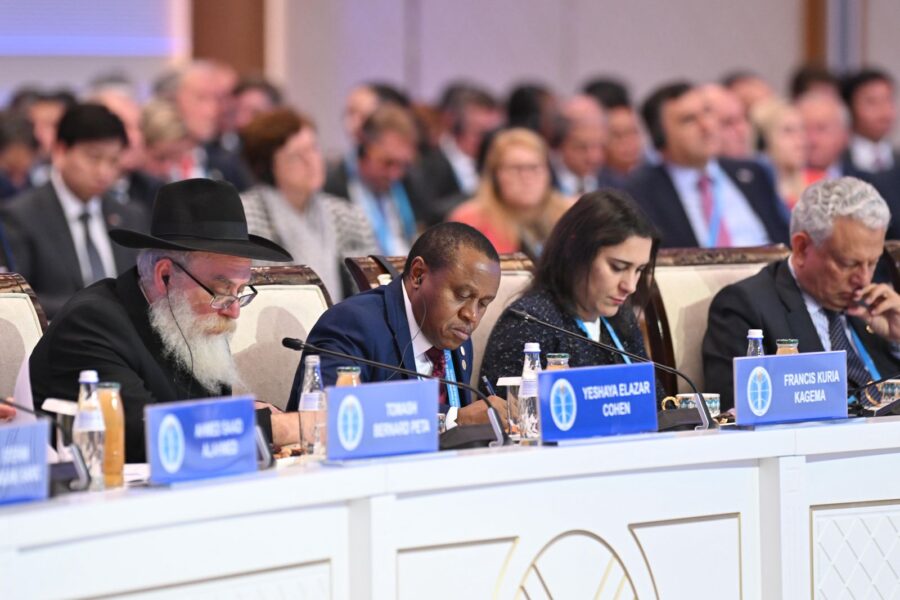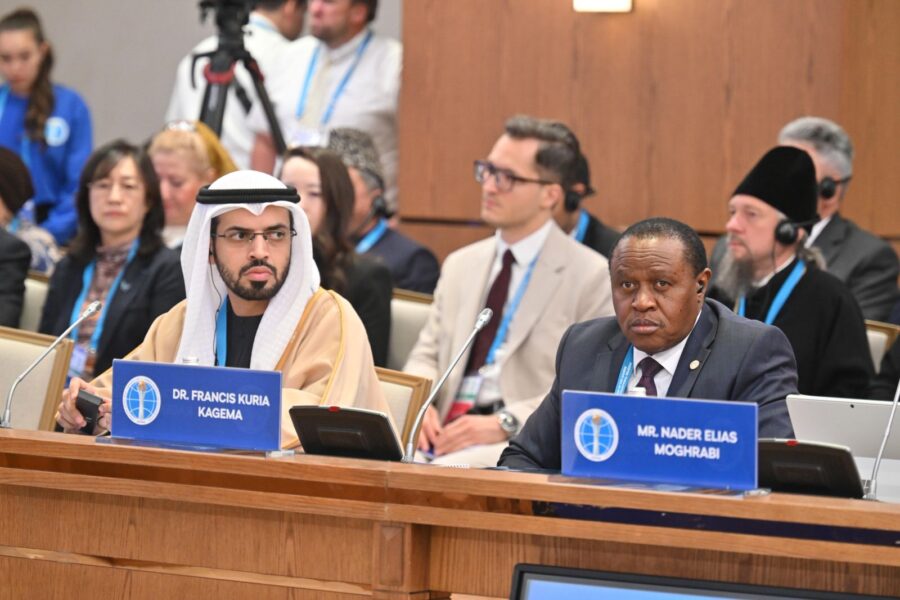Kazakhstan’s Congress of World and Traditional Religions: Two Decades of Interfaith Diplomacy
September 21, 2025
The 8th Congress of the Leaders of World and Traditional Religions took place in Astana, Kazakhstan, from September 17-18, 2025. Chaired by Kazakhstan’s President Kassym-Jomart Tokayev, the forum brought together over 100 delegations from around 60 countries to discuss interfaith dialogue as a cornerstone for global peace and understanding.
The Congress of the Leaders of World and Traditional Religions, launched by Kazakhstan in 2003, has evolved into a globally recognized platform for interfaith dialogue and spiritual diplomacy. This unique initiative emerged in response to growing global tensions and the urgent need for sustainable humanitarian solutions following the September 11, 2001 attacks.
Over eight congresses spanning two decades, this forum has brought together prominent religious leaders from Islam, Christianity, Judaism, Buddhism, Hinduism, Taoism, Shintoism, Jainism, Zoroastrianism, and the Bahá’í faith, alongside distinguished political figures and international organization heads.
Mission and Impact
The Congress serves a profound mission: identifying shared moral values across world religions, fostering mutual respect among all faiths, and preventing the exploitation of religious sentiments for conflict. As President Kassym-Jomart Tokayev emphasized, religious leaders serve as “moral compasses of humanity” in today’s unstable global environment.
Key achievements include establishing the Council of Religious Leaders for institutional continuity, creating the International Center for Interfaith and Interreligious Dialogue, and developing comprehensive frameworks for interreligious cooperation through nine core principles adopted since 2006.

Recent Developments
The Seventh Congress (September 2022) marked a significant milestone, bringing together over 100 delegations from 50 countries, including the historic presence of Pope Francis and Grand Imam Sheikh Ahmad al-Tayeb. The event formalized the Astana Interreligious Summit as a fully institutionalized platform.
The Eighth Congress, under the theme “Dialogue of Religions: Synergy for the Future,” continued this legacy of promoting harmony and peaceful coexistence. Pope Leo XIV, in his welcoming address, affirmed that “when religious leaders stand together in defence of society’s most vulnerable,” they demonstrate that “faith unites more than it divides.” Dr. Francis Kuria, Secretary General of Religions for Peace, delivered opening remarks emphasizing that “none of us—no religion, no nation, no community—can meet the immense challenges of our time alone.” He introduced the concept of “Shared Sacred Flourishing,” highlighting how religious traditions teach that “to love the Sacred is to love the community of being that the Sacred sustains,” and called for dialogue to give birth to action where “prayers for peace become movements for justice.”
Looking Forward
Through its Development Concept (2023-2033) and strategic Action Plan (2024-2025), the Congress has positioned itself as an essential complement to traditional diplomacy. As global fragmentation and ideological polarization increase, Kazakhstan’s spiritual diplomacy initiative demonstrates how interfaith dialogue can bridge divides that conventional diplomatic mechanisms often cannot address.
In the Final declaration the participants emphasized interfaith dialogue as a tool to promote peace and address global crises. In response to rising international tensions, the declaration called for constructive diplomacy and trust-building as the primary tools for resolution. The document underlined the pivotal role of solidarity among religions in a world marked by growing instability, encouraging a global movement for peace, led by religious figures, who would act as a moral compass to reject violence and find peaceful solutions.
Dialogue of Religions: Synergy for the Future_ Dr. Francis Kuria's Remarks (2330 downloads )